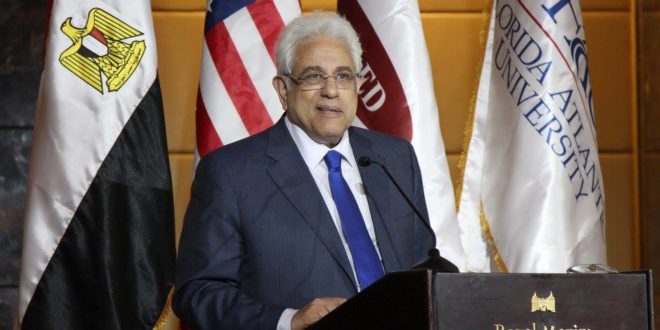Everyone asks me about my opinion in the leakage of Egypt’s High School Certificate “Thanaweyya Amma”; the certificate which determines the academic future of our children based on each student’s overall score.
Firstly, I want to point out the “Thanaweyya Amma” exam with its current model is not the ideal method to achieve equal opportunities among the students. It might be considered as fair since everyone takes the same exam. However, it certainly does not measure the student’s competence or potentials.
Measuring competence and potentials is done through various methods which the Egyptian society has accepted to abandon throughout the years and to stick to the score of a unified exam at a certain moment which determines the future of the student. The reason behind this is that the Egyptian society has lost confidence in the multiple authorities that would determine the student’s competence, and the reason for such lost confidence came from the fear that corruption and favoritism would interfere for the interests of certain people. Therefore, The Egyptian society believed that the one-opportunity exam is fair regardless of measuring competence.
Then came the disaster of collective and electronic cheating and the leakage of the exam questions and answers which totally eliminated the criteria of justice from the one-opportunity exam which does not measure competence in the first place. So why should we keep it with its current status??
This question should be answered by the whole government not just the minister of education.
Moreover, I would like to repeat what I have said 10 years ago. The only law which has proved its efficiency is the supply-and-demand law. As long as the availability in high education universities is less than the number of high education students, “Thanaweyya Amma” would remain the bottle neck through which the students and their families struggle to pass. The medium-term solution is to increase the number of universities in Egypt not only to cater for the current number of students but also to cope with the vision of high education in the future.
It is worth mentioning that less than only less than 28% of Egyptian youth from 18 to 23 years get access in high education compared to the 50% international standard necessary for renaissance while there are countries which have exceeded 60% like Korea and Israel.
Can we change the form of the exam? Definitely yes.
Can we change the acceptance system for universities? Definitely yes.
Can we increase the number of universities? Definitely yes.
Each yes in theses sentences is the outcome of clear ideas and experienced implementation methods.
Egypt needs courage in applying development methods. If the situation remains the same, it would be a huge catastrophe that would demolish any development.
God be my witness.
God be my witness today as He was my witness yesterday.
God be my witness that I have provided solutions and implementation methods for 16 consecutive years.
For deaf ears and eyes that do not want to see.
 Dr. Hossam Badrawi Official Website
Dr. Hossam Badrawi Official Website


